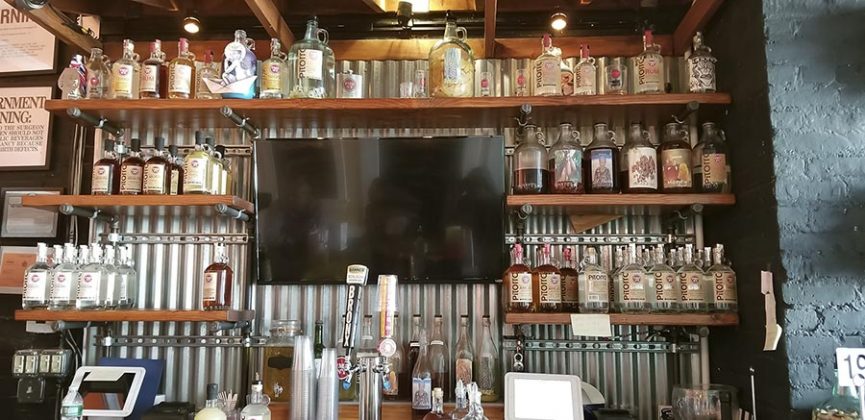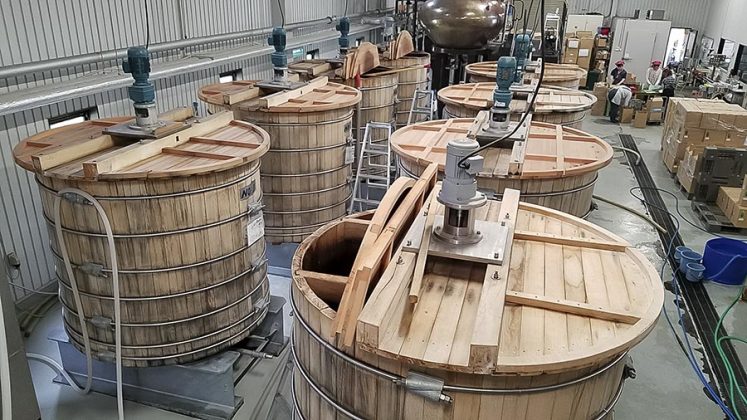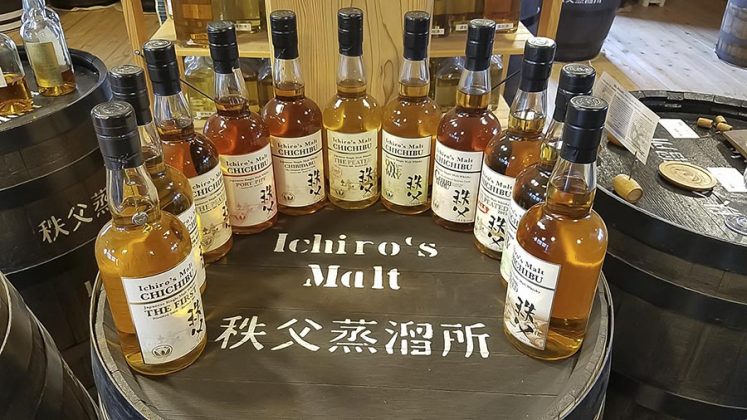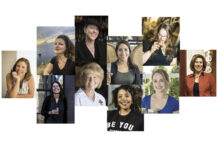One of my many hobbies has been an interest in old-time radio. Something about those stories that manage to paint vivid pictures with just the spoken word appeals to me. Some nights I have Alexa play some of these old programs as I head to sleep. They can make for vivid dreams.
In working on this article, one lesser-known radio program kept running through my mind: “The Lineup.” Each week, the show would take you behind the scenes in a police headquarters where, as the intro put, in a “great American city where under the cold glaring light will pass the innocent, the vagrant, the thief, the murderer… we take you now to ‘The Lineup!’” The stories would change as the crimes and the criminals did. Now, obviously there is no criminal being dealt with here. This is just a glimpse into the real-life struggles of people of color (as a “POC” myself it is an awkward term, I admit) working at distilleries in the US, and a few others around the globe, as they deal with the effect of COVID-19 on their livelihoods. (Obviously, Indian and Japanese nationals are not POC in their home countries. Their inclusion here is more about their position in the industry as a whole as well as to add a global perspective.)
Every aspect of the spirits business is a challenge to those who decide to enter it. Creating a spirit you feel you can sell, getting that spirit to market and fighting to get and keep customers are all just parts of the hustle no matter who you are and how you enter the game. If craft distilling can be like juggling chainsaws while balanced on a tightrope, for some distillers it is more akin to that same feat, just without a net.
The reason I thought of “The Lineup” is that no single distillery could tell this tale. I needed more voices to better illustrate the problems these distillers face due to COVID-19. Below is who I chose and why.
Amrut and Paul John, both based in India, are two of the best “world whiskeys” on the planet (and to be honest, they have already outgrown that dated term). They were able to share their experiences running large-scale operations, ones that would compare favorably to some of the world’s biggest Scotch and bourbon distilleries in terms of output.
Uncle Nearest (Shelbyville, TN) gives us the perspective of a relative newcomer to the industry, but one that has seen an explosion in growth and popularity and that is in the process of finalizing their distillery home. How did COVID-19 affect those plans?
Chichibu is probably the most heralded of the new wave of Japanese distilleries, with releases that have able to go toe to toe with giants such as Suntory and Nikka.
This could not only be a story of whiskeys — The Port Morris Distillery in the Bronx, NY, makers of Pitorro (their take on a Puerto Rican rum); Loft & Bear, a vodka brand based in Los Angeles, CA; and Ten to One Rum (based in New York) have also added their insights to the questions I posed.
I asked everyone the same four questions, and here are some of their answers.
How has COVID affected your business? Did it disrupt any plans for expansion, new distribution, etc., and how have you coped?
Uncle Nearest (Fawn Weaver): OVID has caused us to pivot in every area of our business. The first was we closed our tasting room and tours and have no intention of reopening until after we are clear of the second wave, anticipated this winter. We also had our phase two preview party set for September 5, 2020, that had to be canceled. We are now in a wait-and-see in that regard, as we know at least 10,000 people will show up to help us celebrate that monumental occasion (approx. 3,000 attended when we broke ground), so we’ll need the CDC’s guidance on when large events can be held again. If that will not be by the summer of next year, there is a good chance we’ll open up phase two without any fanfare.
In terms of production and bottling, every day is a box of chocolates, as our sales are through the roof (we are celebrating our 8th quarter in a row of triple-digit gains over STLY). We have strict COVID-19 testing protocols in place, so our productivity is not as great as it was previously, as we never know what worker may be turned away at the door due to a high temperature. All this aside, we are a team that don’t believe in excuses no matter what, so we made decisions at the beginning of this pandemic that have allowed us to increase our sales and to become more effective and efficient in our work.
Ten to One (Mark Farrell): For most small and emerging spirits brands, the majority of their business — often upwards of 80% — comes from the on-premise (bars, restaurants, etc.), all of which quickly came to a halt when COVID-19 hit. And for Ten To One, this was no exception in the immediate aftermath of the March/April on-premise shutdown.
Similarly, we also had plans to expand into new markets in spring 2020, including Florida, California and the Midwest, but were forced to put these plans on hold. We’re pleased to report that we‘re finally starting to move forward and launch these new markets.
Paul John — Michael D’Souza (Head Distiller): ike in other parts of the world, we in India are also affected by the pandemic. Initially there was a 45-day nationwide lockdown, and the unit was shut down completely at the time. During the lockdown, we were given the license to produce hand sanitizers. Our plans to build a new warehouse this year for whisky maturation also got delayed due to the pandemic.
With regard to sales, we faced a slowdown in April and May as a result of the worldwide lockdown, however this did not disrupt any plans for expansion, new distribution and new markets as markets started opening up from June onwards. But we have had to deliver more emphasis on off-trade with limited spends as on-trade has been totally shut world over.
Amrut — (Ashok Chokalingam):: India was under a countrywide lockdown from mid-March to mid-April. That meant the distillery was not producing (we did use a secondary distillery to produce hand sanitizer) and no sales as all liquor stores were shut. There was also no export trade. Then there was a second two-week shutdown in Bangalore in August.
India continues to experience case load rises and there is concern that there will be another nationwide shutdown.
COVID-19 has certainly affected our business. To an extent, it has brought down our turnover and so the profitability. As a result, we have put off some renovation and replacement plans of our plant and machineries as well as some new projects.
Port Morris Distillery (Rafael Barbosa): Our business comes mostly from our tasting room and satellite location. The restaurant and tasting room [have come] to a complete halt.
Our plans to rebrand and repackage our bottles has been pushed back; we were lucky enough to get a complete refund after finding out that our new bottles were coming from China, not Spain, as discussed with the bottle manufacturer.
We were hoping to start distributing to the entire East Coast of the U.S. and Puerto Rico [but that is now on hold].
Chichibu (Yumi Yoshikawa): ur production capacity and distribution are limited, so the production side wasn’t affected by volume a lot. Also, our staff could come to the distillery as usual, fortunately. However, we needed to [delay] our new releases for a few months because of this situation.
Also, we are focusing on bars and restaurants as a point of distribution and some of our best customers needed to close their business, so we considered what we can do for them. We decided to release new products which were exclusive products only for bars and restaurants.
Loft & Bear (Paul Elliott): ortunately, we have managed to stay above water mostly, but not without incurring some setbacks. As we were in the final stages of our new distillery build-out, the combination of an already capital-intensive process and uncertainty around COVID-19 has put a hold on its completion. We are seeing some of our distribution partners beginning to “cut the fat” from their portfolios, but fortunately, our distribution relationships have remained intact. However, it has changed the trajectory of certain strategic partnerships in certain markets. One of the most unfortunate circumstances we have had to cope with is letting 90% of our team go and seeing that same practice amongst many of our restaurant and bar partners. Loft & Bear’s team and core values have played a significant role in communicating with our followers and loyal supporters. It is unfortunate to see that sort of unraveling of the network of friends and family that we’ve been building.
What changes have you made to your operations due to the pandemic?
Ten to One: n the midst of this pandemic, we were forced to find new channels to introduce our brand to consumers while identifying unique ways to continue to support our community. Since case volume is typically built from on-premise onwards, we’ve had to turn the traditional model on its head and create a new path to our consumer, with key investments in industry partnerships and ecommerce over the past several months. We’ve also focused more of our efforts on off-premise/retail, given the current environment, and increased brand visibility, and have embraced the shift to virtual consumer engagement via virtual cocktail classes, happy hours and founder tastings while also updating our website offerings.
When COVID first struck it was very important for us to continue supporting our community and the folks who have supported us since launching the brand. We organized a hospitality support series for individuals affected in the broader community, sent meals to first responders and launched social fundraising campaigns on behalf of the brand.
This pandemic was and is difficult to handle. On the one hand, you have got to deliver to the market, and on the other hand, we have a shortage of manpower and the need to maintain social distancing, etc., had a profound effect on our business. This has affected the supply chain equilibrium and loss of business, too. On the operations front, we could not do much of a change. On the administrative side, we have made most of the resources to work from home and our staff are adapting to online meetings and able to work from home and deliver what the business needs.
Amrut: Port Morris Distillery: and sanitizer — we went full production. Selling hand sanitizer throughout the US. We became an FDA-approved facility, and as fast as we were selling hand sanitizer the rug was pulled from under us and it all came to a halt. The US allowed hand sanitizer to be sold from all over the world, undercutting pricing and flooding the market. We still make some sales here and there but have enough stock to donate to organizations across NYC.
Loft & Bear: e’ve essentially eliminated anything non-essential from OPEX (Operating expenses)
What further/future changes do you envision for next year?
Chichibu: ext year will be different, we hope. Our second distillery started operations last year, and it is going well so far. We hope that we can take our new spirits to whiskey events around the world and talk with our many whiskey fans.
Loft & Bear: e expect home-consumption to remain strong, so we’re really trying to stay in lock step with our chain and retail partners such as Total Wine, BevMo, etc. As budgets and operations kind of tighten up, we feel there are opportunities for distilleries such as ours to consider finding outside investment to help weather the storm and hopefully come back even stronger. Next year could be a good year. Next year could be a great year!
We anticipate the next year will remain quite uncertain for folks as things begin to reopen and people adapt to the new normal. We are going to continue investing in new channels to engage the consumer, support our community and increase overall case volume. We also will need to remain nimble and quick to respond to new opportunities and whatever is thrown our way.
Port Morris Distillery: ealistically, we haven’t looked that far, just taking it month by month. The pandemic has honestly deflated the large blimp we had flying over our location. We hope to make it to March 2021 and reassess our options then. It will be like starting all over again, the momentum we had has slowed down. Our presence as a homegrown, truly craft spirit has dramatically slowed down.
What have you learned as you and your business navigate your way through this crisis?
Amrut: hat we have learnt is how to survive through and live when a pandemic of such a nature hits again and there are certain measures that we need to take on the financial side to manage the bubbles.
Uncle Nearest: hat we can succeed during any time if we make decisions from a place of confidence versus fear. We went into this pandemic determined to grow no matter what, and we will carry this mentality and success with us for many decades to come. What this team has been able to accomplish together is mind-blowing, and it’s because we stayed focused and didn’t allow this pandemic to take us off course — not even for a day. We just had to find different solutions and get incredibly creative… and pivot as many times as needed until we got it right.
Paul John: We have around 130 people working in our unit, including workers from the distillery, bottling and winery. In order to continue uninterrupted functioning of the unit, we are taking every precaution and following all safety measures to ensure there is no infection or spread in our team. In India most of the work is carried out manually, hence, we tend to hire more workers. However, due to present circumstances, we are trying to minimize the workforce to avoid infection and maintain social distancing. We are learning that it’s time to shift to automatic from manual operations.
With regard to our marketing activities, being physically present in all markets is still not possible, so we have ensured remote working by focusing on digital activities and maintaining a cautious spend on other marketing activities. Participation in online events and tastings, organizing virtual distillery tours, etc., have been our focus during the crisis.
Port Morris Distillery: I’ve learned that the craft industry is fragile and unless you have a major distribution of your brand or product it can all be taken from you. At the moment, we are focusing on production, distilling, bottling and barrel aging our añejo and trying to connect with distributors. [We have been] collaborating with other businesses and cross promoting. I have been thinking more of how we stay in the industry even if we have to close or doors and shut down production.
Loft & Bear: hings happen, and you need to adapt when they do. We’re still blessed to have our business, and we try to be empathetic to the fact that everyone is being affected in different ways.
When I started writing this, I said that this was not a radio drama and there was no villain to be found, I was obviously wrong. A bartender friend of mine pointed out to me that COVID-19 was the villain of this piece. On some level, all these different players have had their businesses disrupted, their forward momentum slowed or stopped and, in some cases, their livelihoods put in jeopardy through no fault of their own. An actual thief could hardly have hurt them more. But still they fight and look to better days, no matter what may come.











